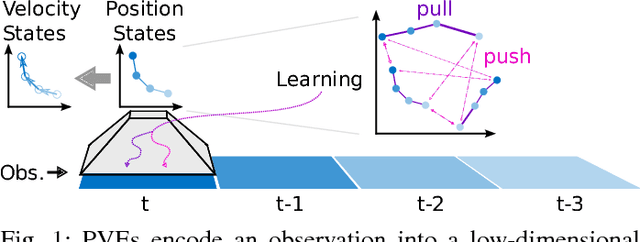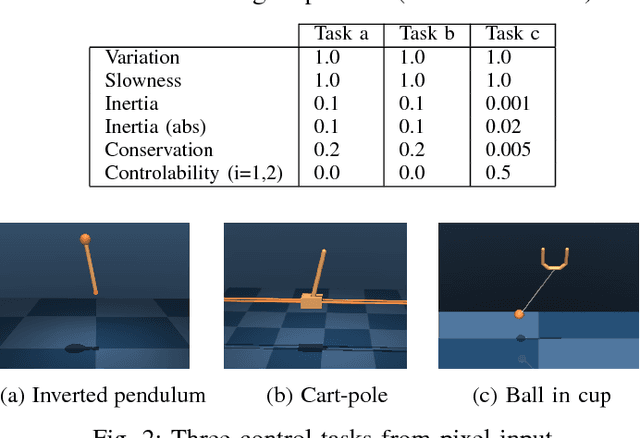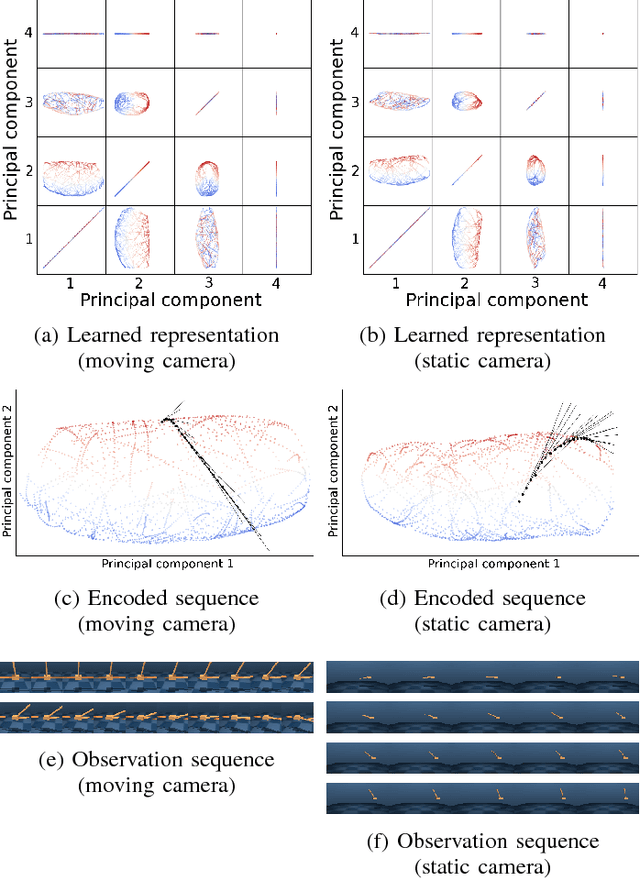PVEs: Position-Velocity Encoders for Unsupervised Learning of Structured State Representations
Paper and Code
Jul 24, 2017



We propose position-velocity encoders (PVEs) which learn---without supervision---to encode images to positions and velocities of task-relevant objects. PVEs encode a single image into a low-dimensional position state and compute the velocity state from finite differences in position. In contrast to autoencoders, position-velocity encoders are not trained by image reconstruction, but by making the position-velocity representation consistent with priors about interacting with the physical world. We applied PVEs to several simulated control tasks from pixels and achieved promising preliminary results.
* Accepted at Robotics: Science and Systems (RSS 2017) Workshop -- New
Frontiers for Deep Learning in Robotics
http://juxi.net/workshop/deep-learning-rss-2017/
 Add to Chrome
Add to Chrome Add to Firefox
Add to Firefox Add to Edge
Add to Edge